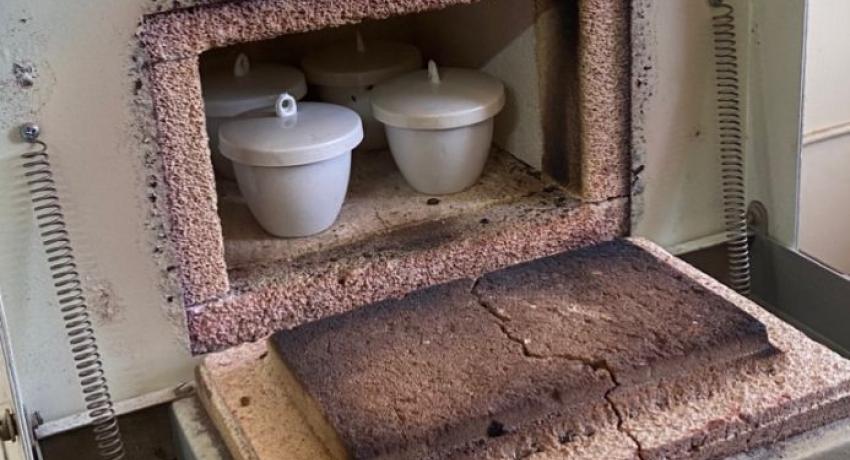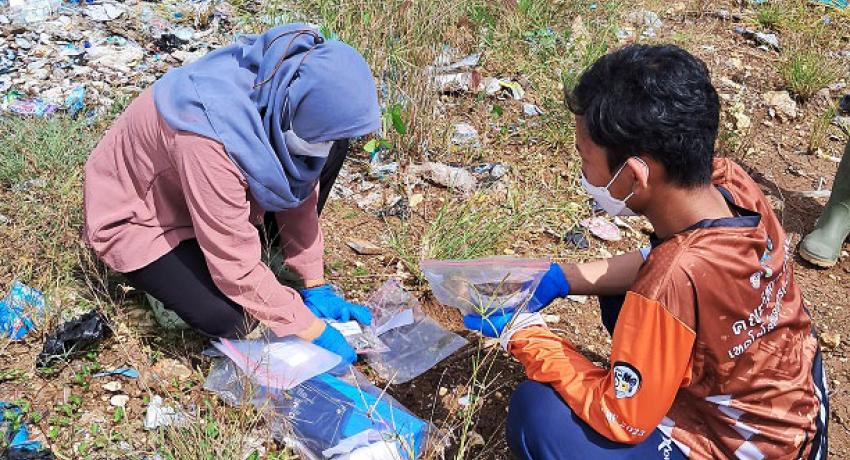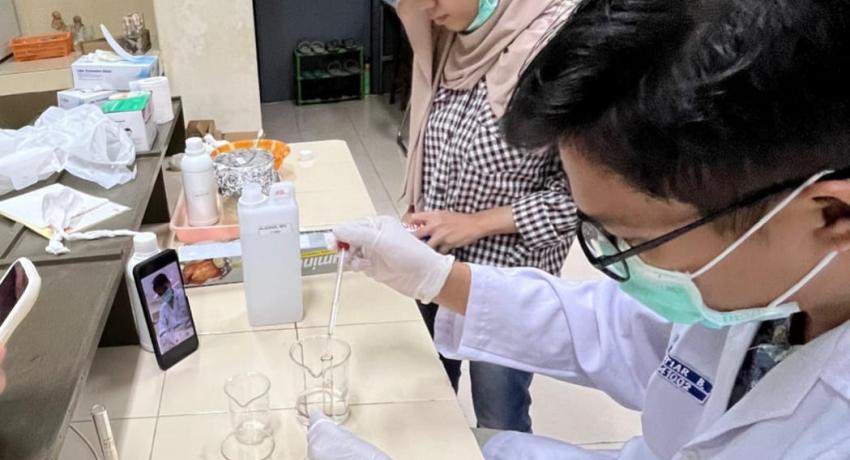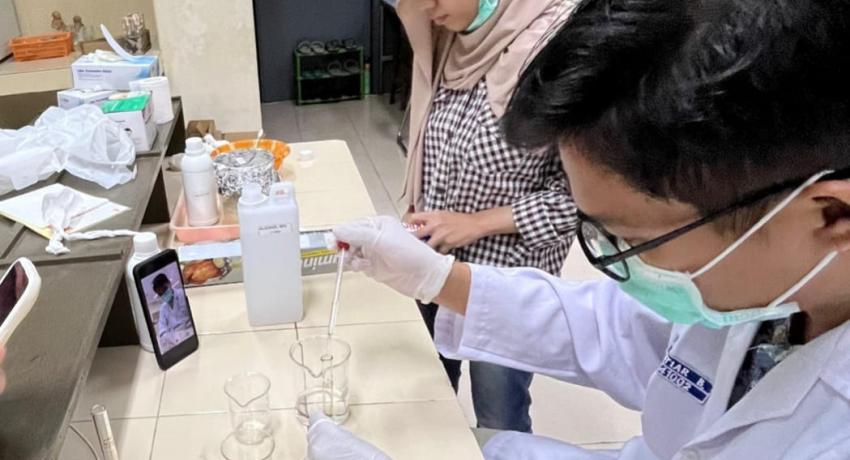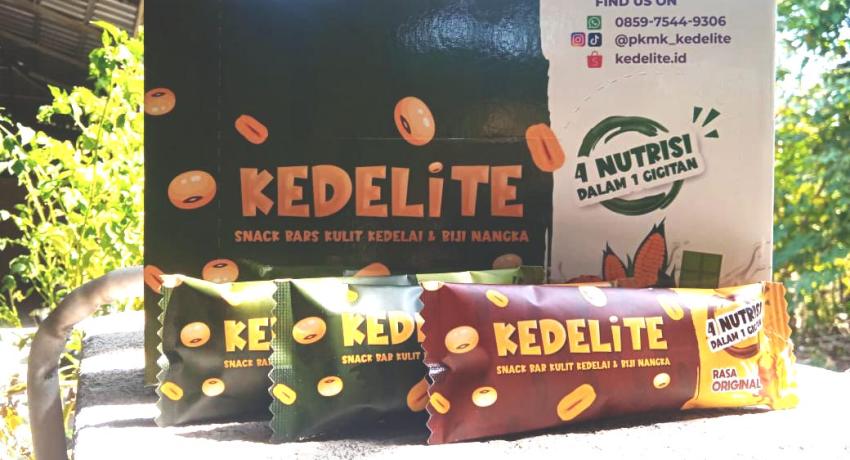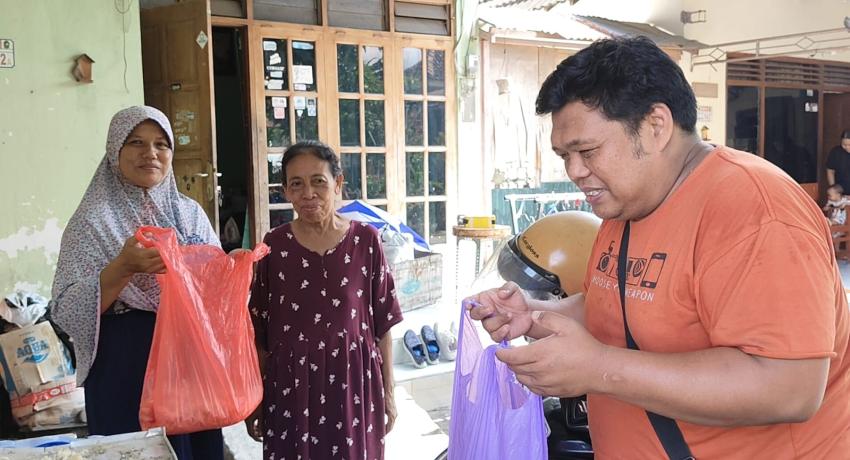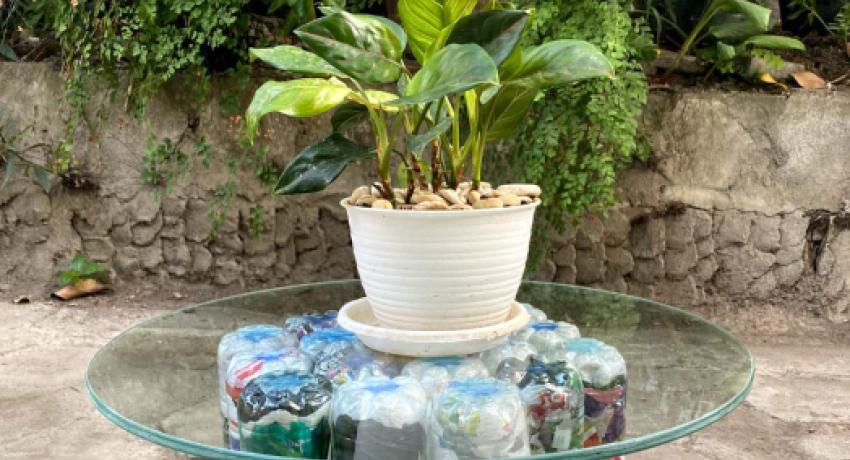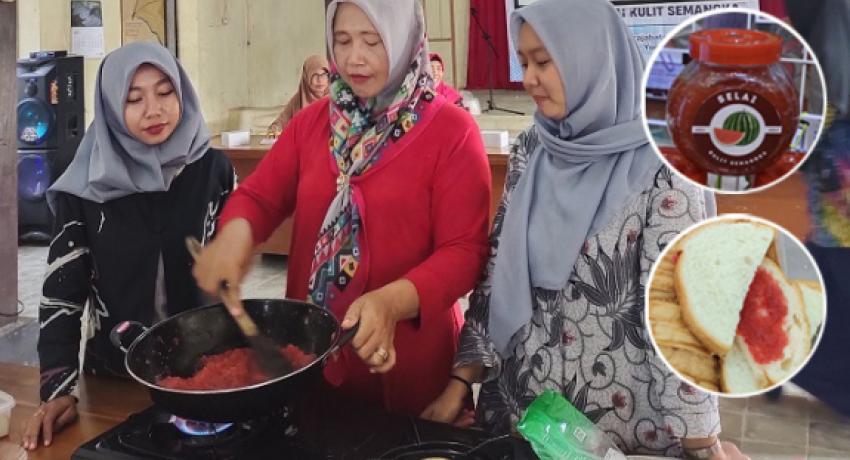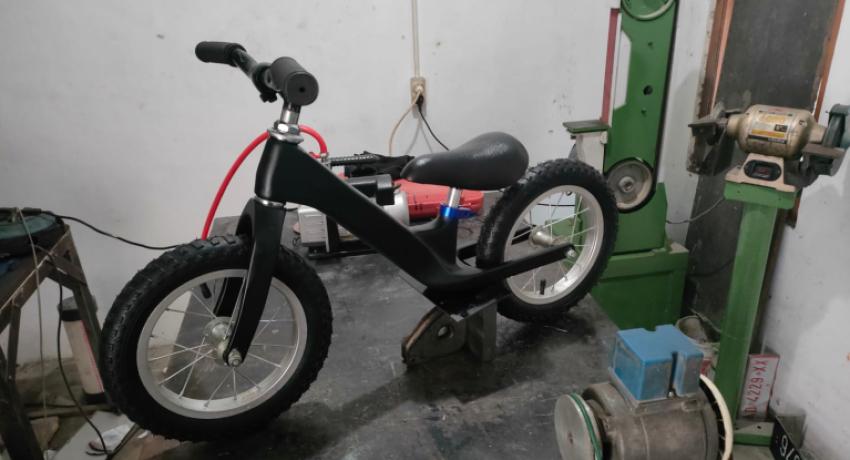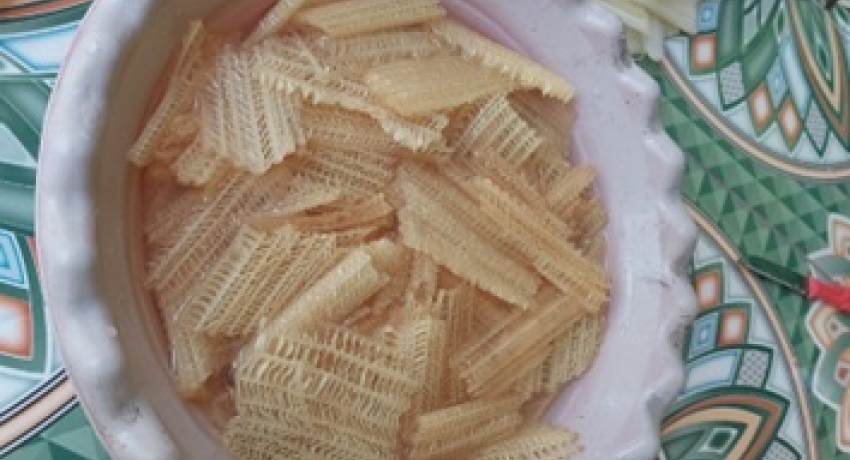Turning Cassava Peels into Eco-Friendly Adsorbent for Industrial Waste
A team of four students from the Faculty of Mathematics and Natural Sciences (FMIPA) at Universitas Negeri Yogyakarta (UNY) has successfully developed an eco-friendly adsorbent using cassava peels. Known as the “Adsorben Singkong” team, their innovation combines magnetite nanoparticles with activated carbon derived from cassava waste to remove toxic chromium ions (Cr6+) from leather industry wastewater.


